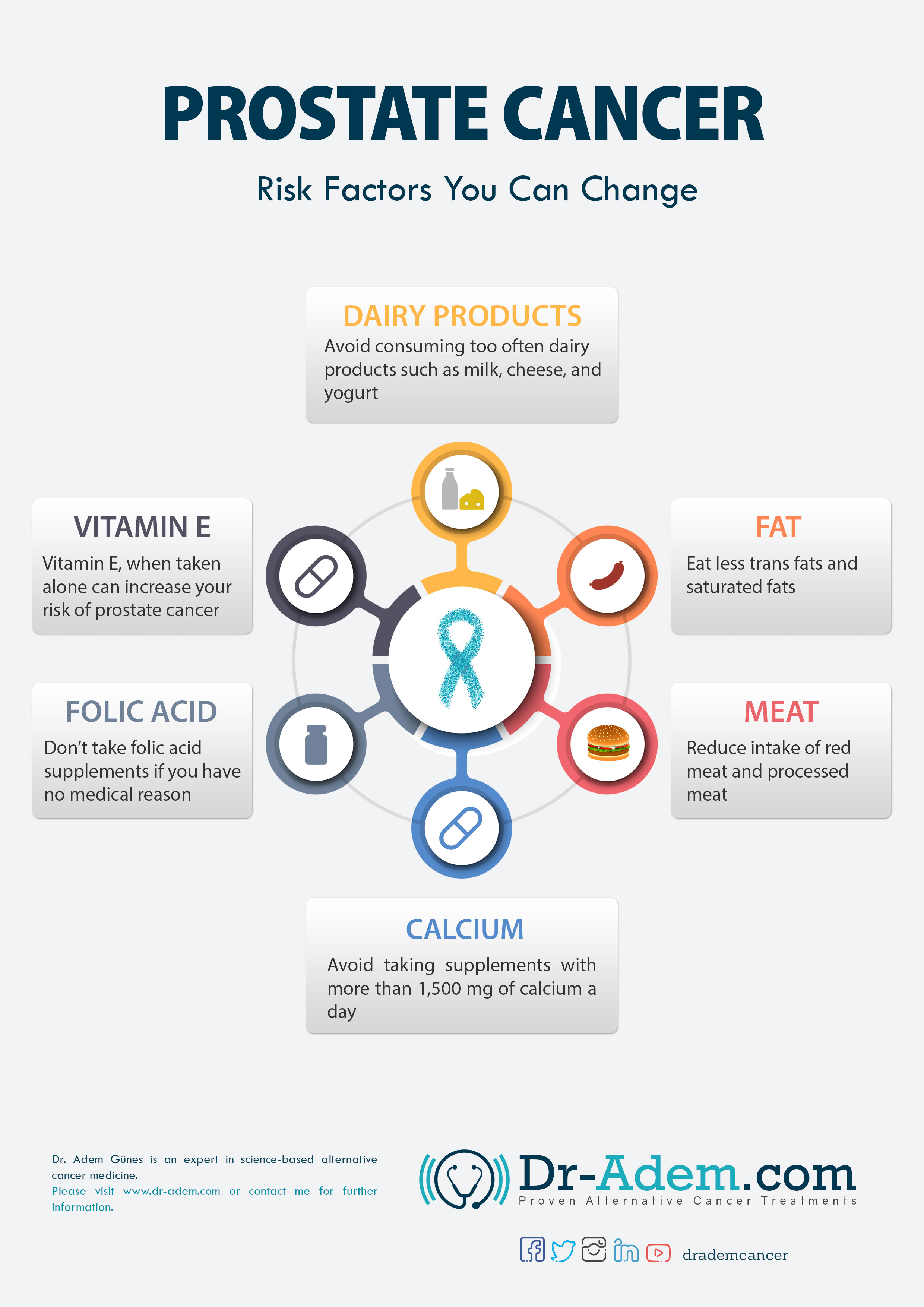Here’s the list of risk factors associated with prostate cancer that you can change, but also there are many other factors that you can’t control.

Embed this Infographic on your site:
<a href='https://dr-adem.com/risk-factors-associated-with-prostate-cancer/'><img src='https://dr-adem.com/wp-content/uploads/2019/10/prostate-cancer-risk-factors-you-can-change-1.jpg' alt='Risk Factors Associated With Prostate Cancer'/></a>- Dairy Products
Avoid consuming too often dairy products such as milk, cheese, and yogurt. Dairy products raise the risk of prostate cancer because they contain the hormone IGF-I along with increased levels of trans fats and dairy calcium. Studies support that a plant-based diet lowers the risk of getting prostate cancer or slowers its progression. - Vitamin E
Vitamin E, when taken alone, can increase your risk of prostate cancer. The Selenium and Vitamin E Cancer Prevention Trial (SELECT) found that instead of lowering your risk, vitamin E supplements may increase it instead. Therefore, there’s no need for casual consumption of vitamin E. - Folic Acid
Don’t take folic acid supplements if you have no medical reason. Try to fortify your diet with folate naturally, through green vegetables or beans. Folic acid increased the risk of those taking it as 1 milligram (mg) daily. However, the risk seemed to decrease for those consuming folate from natural sources. - Calcium
Avoid taking supplements with more than 1,500 mg of calcium a day. Long latency periods of calcium consumption increases the risk of advanced-stage and high-grade prostate cancer. Calcium is one of the main components of dairy products. The key to the prevention of prostate cancer is consuming both responsibly. - Meat
Reduce intake of red meat and processed meat. Animal proteins such as beef, pork, and lamb are associated with aggressive prostate cancer. Limiting the consumption of animal proteins and adopting a healthy and balanced diet would decrease your risk of prostate cancer. Try and consume the recommended amounts of fruits and vegetables daily and replace the excess of animal proteins with plant protein. - Fat
Eat less trans fats and saturated fats. There is a strong link between saturated fats and the aggressiveness of prostate cancer. The effect seems to be stronger among those not taking statins. Responsible for that is the increased serum cholesterol levels, which have an impact on your prostate cancer risk. Try to adopt a plant-based diet that is high in fiber, low in fat, and with limited amounts of animal proteins. High amounts of dairy products and sugar intake should not be among your diet choices.



